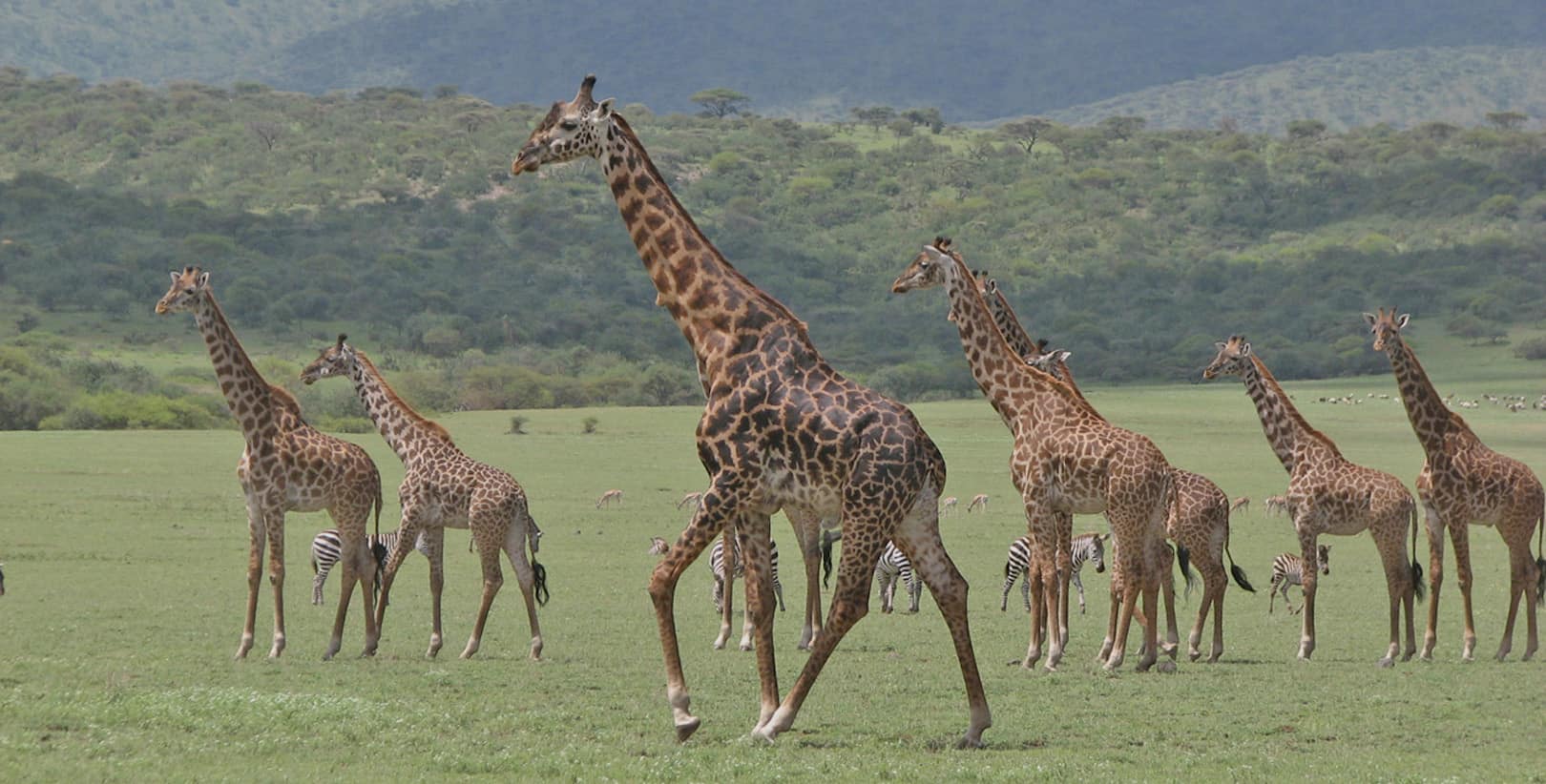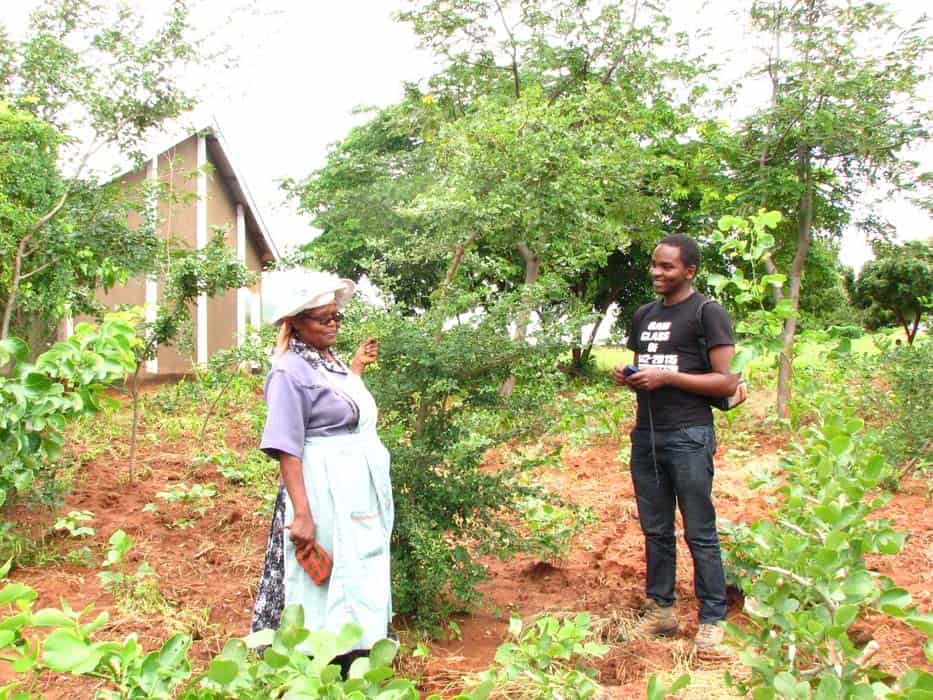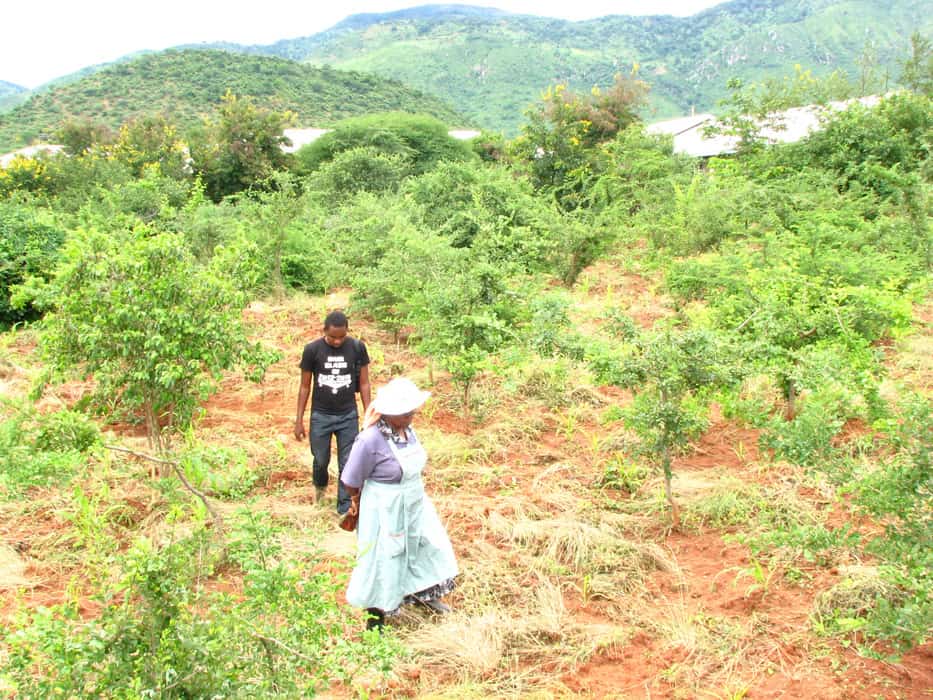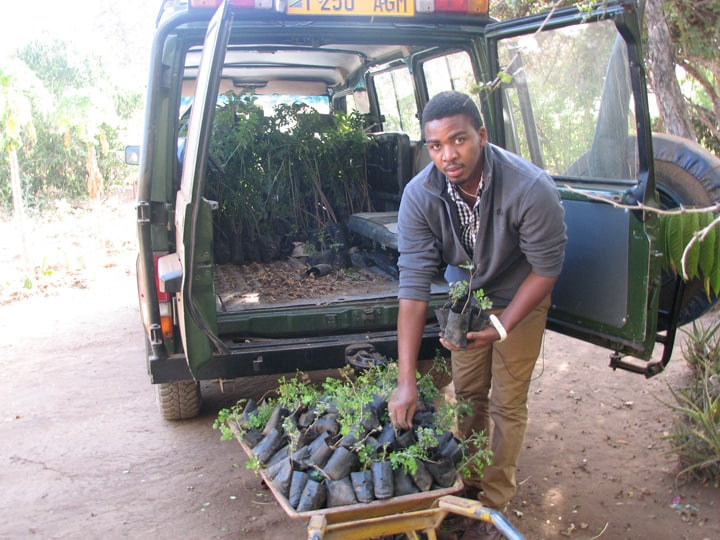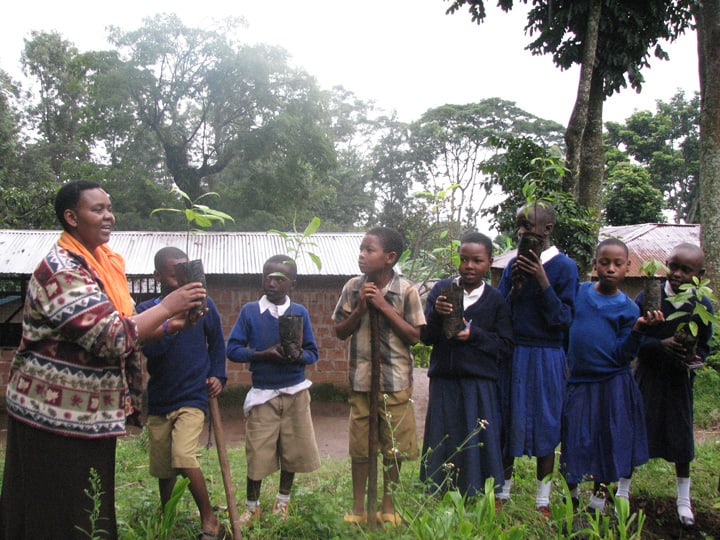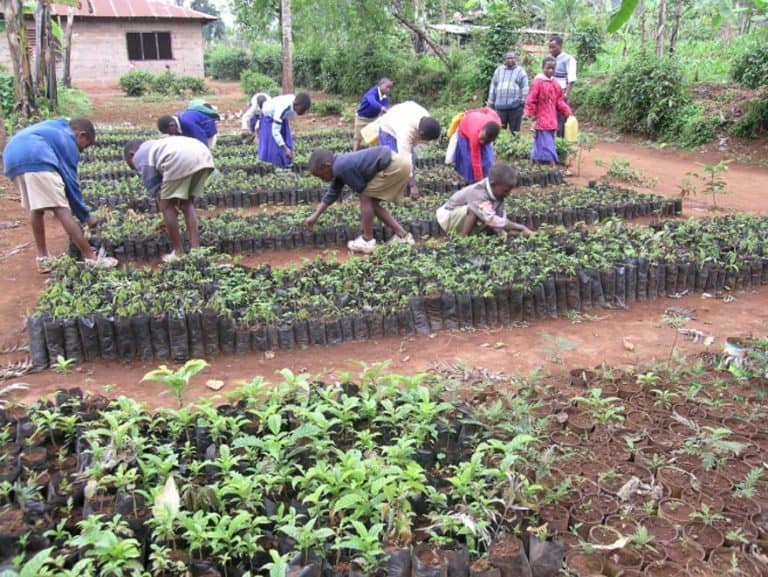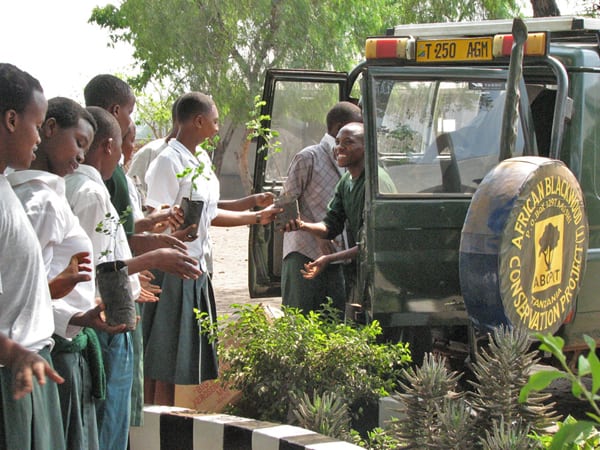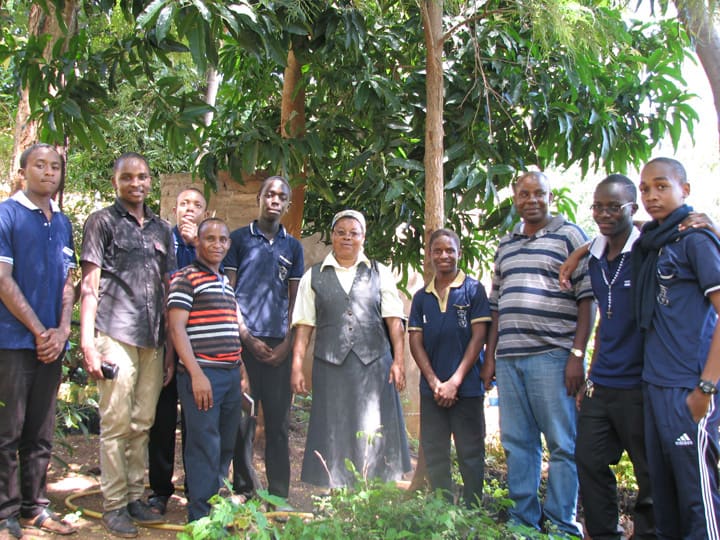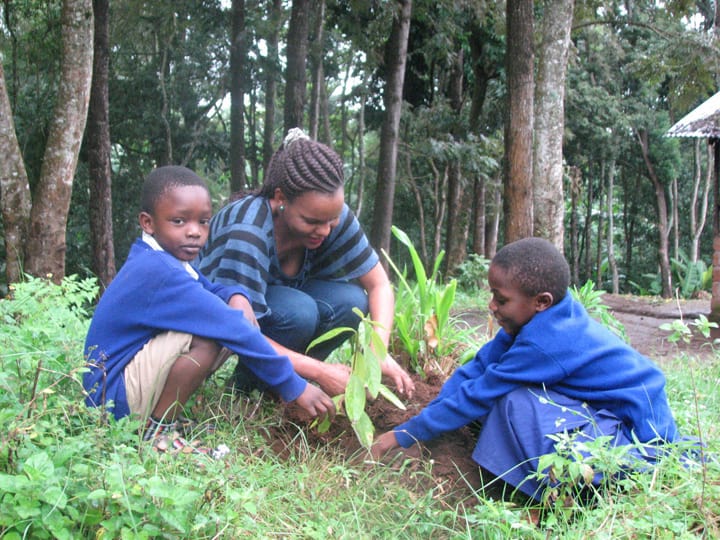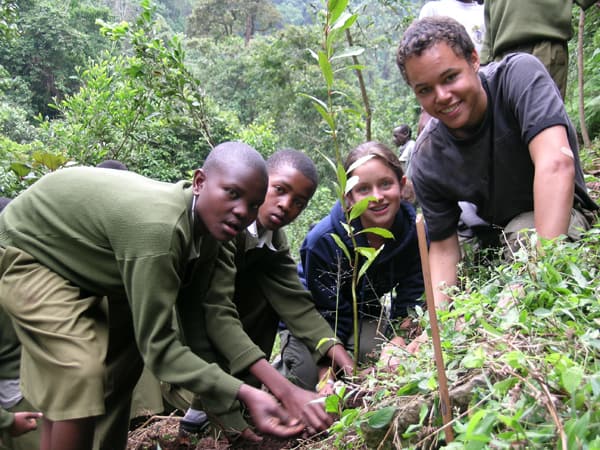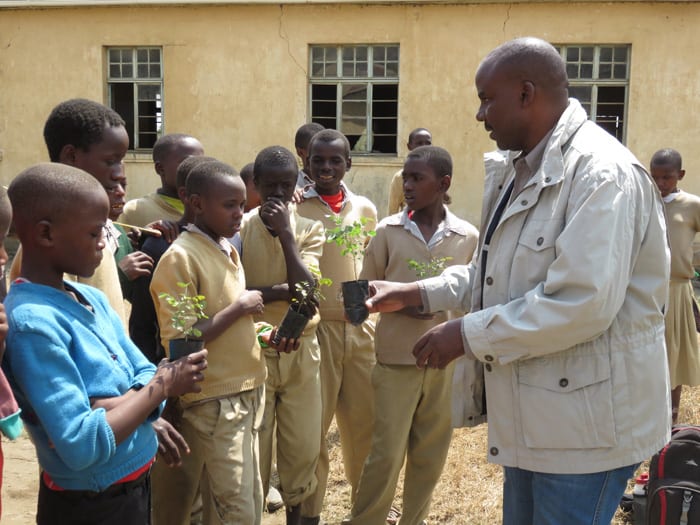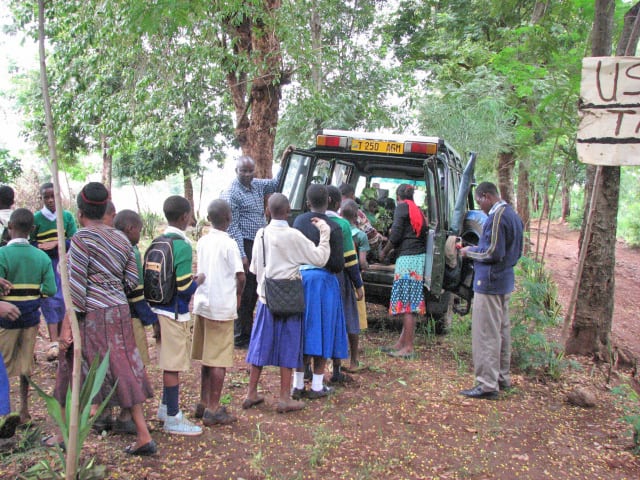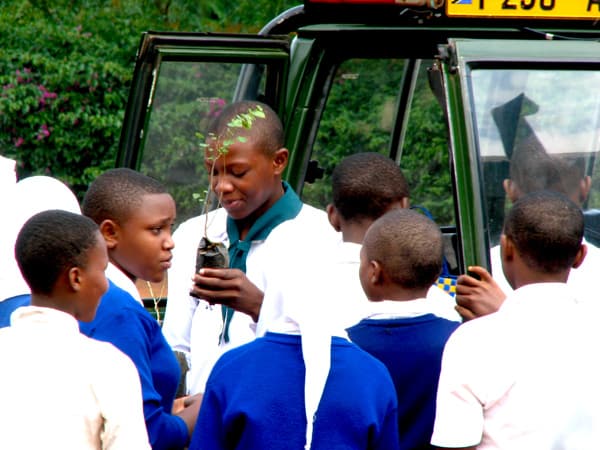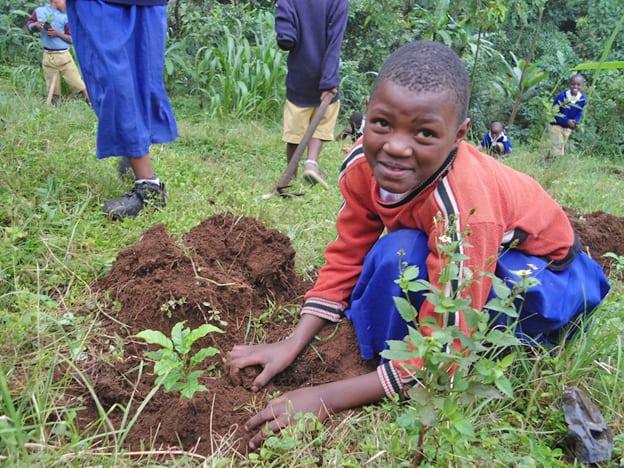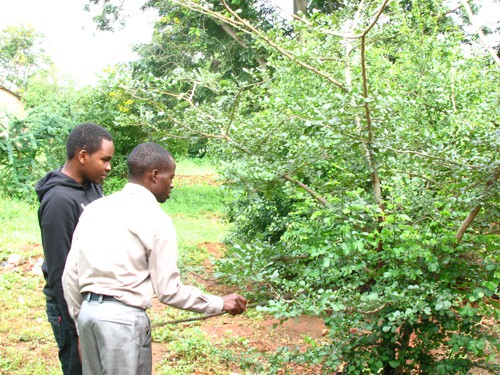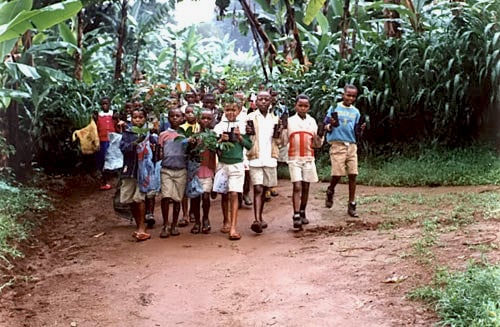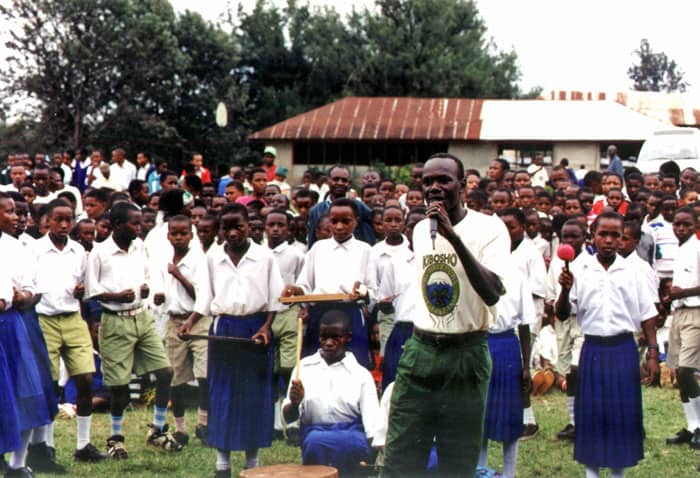ABCP School Tree Planting Groups
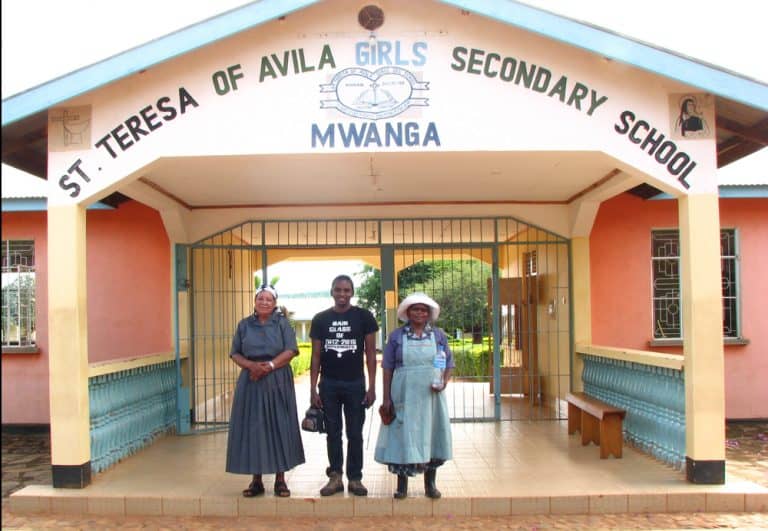
Cyril Chuwa with Sr. Maria Goreth and environmental teacher Sr. Malley at St. Theresa's Girls School.
Since the inception of the ABCP, tree planting and conservation education – both youth and adult – have each been an integral part of its paradigm of outreach. To this end it has often worked through area schools, enlisting the assistance of concerned teachers and students to implement tree planting programs and remedial conservation efforts. Since schools in Tanzania often have large surrounding grounds, they are ideal for the replanting of a species that is treasured in Tanzania and will be preserved for future generations.
Through the years this outreach has continued and has been broadened to include schools in new areas. Every spring the ABCP team in Tanzania travels to different locations to deliver tree seedlings grown in the ABCP nursery for replanting on school or community lands. These trees will be protected and cared for by the participating institutions. In this way the tree seedlings have a far better opportunity for survival compared to seedlings that are planted in the wild. Throughout the tropics, valuable hardwood species and rosewoods such as Dalbergia melanoxylon are showing increasing inability to reestablish themselves in the wild. One reason for this is the increased wildfire risk the world is experiencing today. Another is that their seedlings are favored by grazing ungulates. In public woodlands, with nothing to protect them, seedlings of such slow growing species often have only a marginal chance of growing into mature trees.
The paradigm established by the ABCP to insure their seedlings have a good chance of survival is to replant them in locations which are unlikely to be cleared for agriculture or settlement and where some oversight will be provided by local community members. Many of the mpingo trees it has planted have reached an age at which they are resistant to fire and animal predation and therefore have a good chance of future survival. Many are now seed-bearing and may in turn establish new tree seedlings in these relatively protected areas.
St. Teresa Of Avila Secondary School
St. Teresa of Avila Secondary School was founded in 2006 as an all-girls’ school by the Grail Sisters of Tanzania, a religious order which has established both primary and secondary schools with the objective of providing “quality education to enable female students to explore opportunities for leadership at all levels.” The secondary school curriculum is designed to prepare the students for college. It is located in Mwanza, a community 30 miles southeast of Moshi, and has been working with the ABCP since 2015, concentrating particularly on the planting of mpingo seedlings on its school grounds. These trees are receiving special care, including regular inspection and pruning. Below are photos of the school and its mpingo orchard.
The Grail leadership is committed to providing community services at multiple levels, and also run dispensaries, bookshops and vocational training programs. An important part of their outreach through the years has been a commitment to the environment, including conservation training and programs for students, along with community activism. To this end they sponsor outreach programs to make local residents aware of natural resource degradation and how they can take steps to reclaim and improve the land. To address these concerns they operate a tree nursery to supply indigenous species to the local residents that are useful for domestic needs and environmental remediation. In order to affect long term change and political policy, Grail members attend government meetings and present ideas on how to overcome environmental problems in Tanzania and lobby for the establishment of school and community programs for its protection and preservation. The ABCP extends its gratitude to the St. Teresa staff and students for their diligent work in protecting the environment, their allocation of land for African blackwood and the oversight and concern they have shown in seeing to the proper care of the trees they have planted in order to assist in the ongoing efforts to ensure its continuance within its native land.
Photo Gallery Of School Groups
The ABCP has worked with many other school groups through the years. Below is a photo gallery showing some of them.
World Environment Day
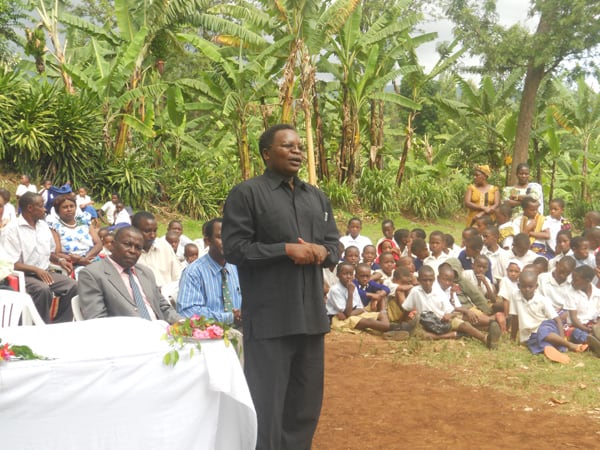
Because of their active conservation work, in 1996 the government of Tanzania invited the Kibosho East groups to host the first World Environment Day ceremonies for the whole Kilimanjaro Region, held in conjunction with international World Environment Day. Representatives from Kibosho East schools arranged the ceremonies and drew up a set of conservation resolutions for the area, and Sebastian and Elizabeth contributed 100,000 tree seedlings for replanting on the mountain. Villagers were urged to each plant a tree for environmental restoration. One of the first initiatives in association with the event was to plant 15,000 seedlings along Mweka Route, the main trail for backpackers going up Kilimanjaro, which is badly deforested because of overuse. The 5-day celebration included environmental music and plays by the students and speeches by political dignitaries and officials. Those who attended were asked to help in implementing responsible conservation practices such as protecting water sources, responsible grazing and fire safety.
Environmental Conservation - Kibosho East
The groups which participated in these events published a book entitled, Environmental Conservation — Kibosho East, written and edited by the teachers and sponsors of the activities. It recounts and documents the conservation efforts of the Kibosho East schools, provides a handbook for teaching environmental awareness and includes an extensive list of plant and animal species found in the region compiled by Sebastian Chuwa (pg. 80). It also includes his list of medicinal plants, with the human and animal diseases they treat and their means of preparation. This information, traditionally secret, gives the citizenry the knowledge needed to treat themselves by using locally available plant species. Plant derived medicinal remedies are of great importance in Africa, whose citizens often lack access to health care or the means to cover its costs. Further information about ABCP replanting efforts on Mt. Kilimanjaro and a discussion of the mountain’s vital importance in the economy and ecology of eastern Africa can be read here.
